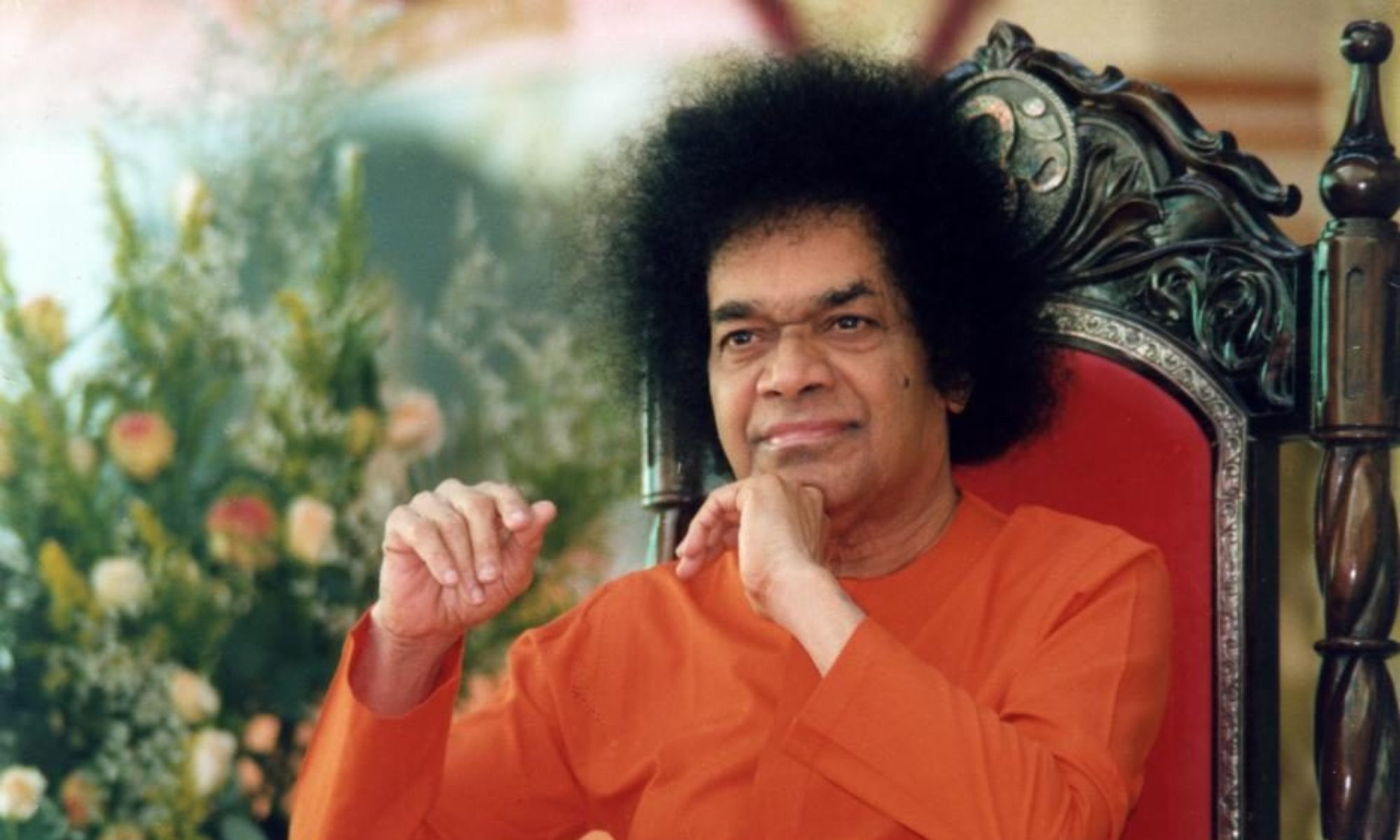In this edition
- Upcoming events
- Geetha Vahini
- Easwaramma Day
- Self-condemnation is egoism
- Devotional activities in Chicago and suburbs
Upcoming Events
- Sunday May 05, 2019 Easwaramma Day Celebrations
- Devotional program starts at 10:00 AM followed by SSE presentation
- Time: 09:30 AM – 12:00 PM
- Venue: River Forest Community Center
- Sunday May 12, 2019 Mother’s Day Celebration
- Regular Center activities followed by lunch (prepared by men)
- Time: 09:30 AM – 01:00 PM
- Venue: River Forest Community Center
- Saturday May 18, 2019 Workshop: Inside Out – The path to authentic Freedom
- Chicagoland all center program with Dr. Sanjay Mahalingam and Dr. Supriya Rao
- Time: 02:00 PM – 05:00 PM
- Venue: Alcott Center, 530 Bernard Dr., Buffalo Grove, IL
- Sunday May 19, 2019 SSE Graduation and Guest Speaker
- SSE Graduation and guest speaker Dr. Sanjay Mahalingam
- Time: 09:30 AM – 02:00 PM
- Venue: River Forest Community Center
Geetha Vahini
The faculty of the mind is as a strong current of electricity. It has to be watched from a distance and not contacted or touched. Touch it, you are reduced to ashes. So too, contact and attachment give the chance for the mind to ruin you. The farther you are from it, the better. By skillful methods, you have to make the best use of it, for your own welfare.
The bliss which the Sthithaprajna is immersed in does not arise from external objects, he has no need of them either. Ananda is in everyone, as part of his very nature. Those with pure consciousness find the highest bliss in the realization of their own reality, the Atma. That joy is Swasampaadyam (self-earned, so to say). It is known only to the individual, it is self-evident.
Since Arjuna had not known this, Krishna had to clarify it in simple terms in the 56th, 57th and 58th slokas. Joy or grief can be met with in three forms: Aadhyaathmika (sufferings due to mind, psyche), Aadibhouthika (sufferings due to elements) and Aadidaivika (suffering due to demigods). It is well known that sins bring grief as a retribution and meritorious deeds bring joy as reward. So advice is given to avoid sins and perform meritorious deeds. But the Sthithaprajna (a steady-wisdom individual) knows neither the pain of grief nor the thrill of joy. He is not repulsed by one or attracted by the other. He will not retreat before pain or run forward towards pleasure. Only those who are ignorant of the Atma will exult or droop, when stricken with joy or grief.
The Sthithaprajna will be ever engaged in Manana, or contemplation and rumination. He is called Muni (One who has controlled the mind and is established in silence). His intellect is steady, be-cause the senses do not harry it. One point has to be understood here. Conquest of the senses is essential for sadhana (spiritual practice); but that is not all. So long as the objective world continues to attract the mind, one cannot claim complete success. That is why Krishna says, “Arjuna! Establish mastery over the senses.
Then you need have no fear, for they become serpents with the fangs removed.” But there is still danger from thoughts and impulses which draw you outwards. Desire has no limit, it can never be satiated.
So along with the mastery of the senses, one must establish mastery of the mind also. That is the sign of a Sthithaprajna (a steady-wisdom individual), and not a Gathaprajna (a no-wisdom individual). Where does the Gathaprajna go? To perdition and nowhere else.
The upward path, the higher stage—that is for the Sthithaprajna. Of these two masteries, if the mind is subdued, that alone is enough. It is not necessary then to conquer the external senses. If the mind has no attachment with objects, the senses have nothing to cling on to. They perish by inanition. Love and hate are both starved out of existence. The bonds of the objective world are cut, though the senses may yet be affected by it. For him who has been blessed by an awareness of the Atma, how can anything worldly bring grief or joy?
As the stars fade into invisibility when the sun rises, so too, when the Sun of Knowledge or Jnana rises, grief, agitation and ignorance vanish. Man has three chief instruments: the mind, the intellect, and the senses. It is when these three work in unison and co-operate with one another that either ‘immersal in the flux’ or ‘liberation in the knowledge of the Atma,’ is realized. Krishna anticipated that Arjuna will be puzzled to know what will happen “when which operates with which.” So He himself provided the answer. “Arjuna,” He said, “when the mind co-operates with the senses, you enter into the flux called samsara (change). When it subordinates itself to the intellect, you attain the knowledge of the Atma. One path leads to Samsara-praapthi (worldly fulfillment); the other, to Atma-praapthi (fulfillment of the soul). The intellect must resolve, the mind must carry out the resolution so made. That is the correct procedure.”
-Excerpts from Geetha Vahini
Easwaramma Day
An Avatar is an Incarnation of God. In a broad sense, everything in the Universe is a manifestation of God. Yet, the term Avatar is reserved for those Incarnations wherein the Lord deliberately assumes a specific form for a specific purpose. Swami says,
The mother is man’s first preceptor (guru). She gives him the physical body. Besides, she gives the father to man. She alone can point the father to the child and draw his love and care toward it. The mother bears, fosters, and molds the child into humanness, so gratitude is due to her first and foremost.
My life is My Message. So I am setting an example of reverence to the Mother. Nature is the mother in whose lap mankind grows. And nature fondles the child and says, “Child (babu), that is your father, see.” Though Mother Nature draws attention to God, but the children seldom pay heed. How can they, who do not love the mother that fosters them with affection and zeal, adore the Master of Nature?
This day is Easwaramma Day. The significance of the day is that it is celebrated as Children’s Day, a day when little children are to be reminded of the ideal, a day when she presented an ideal. No one can escape death, but the aim of everyone should be to remind oneself of the Divine at the time of death or have some holy or sacred thoughts. The importance of this day is known to many. Kasturi just spoke about it. There is a saying in Telugu, “The proof of the Good is the way they die.” Genuine devotion is evidenced during the last moments. I shall point out a small incident concerning the goodness of Easwaramma.
The summer classes were on at Bangalore. In the morning at 7, breakfast had to be served to the students. They went round singing spiritual songs in the streets (nagara sankeerthan) and returned at 6. I gave them darshan (sight of a holy person) at its close. Then, I went for my bath. Meanwhile, Easwaramma had finished her bath; she drank her coffee as usual, quite happily, and took her seat on the inner verandah. All of a sudden, proceeding to the bathroom, she cried out, “Swami, Swami, Swami,” thrice. I responded, “Coming, coming.” Within that period, she breathed her last. What greater sign of goodness is needed? She had no need to be served and nursed. Swami will come to the memory at that time only for a very few. The mind will usually seek and stay on some object or the other, some jewellery or valuables.
From the ground floor, she called, “Swami! Swami!”. I replied, “Coming, coming,” and she was gone. It was like the elephant’s calling and the Lord proceeding to bless it — the two wires achieving connection, the release happening instantaneously.
This is the authentic consummation for which life must strive. Beside her at the time was her daughter Venkamma and her granddaughter Shailaja, but she called out only for Swami. Getting this yearning at the final moment is the fruit of holy purity. It is the sign of an ideal adorable life.
Love for mother has to be fostered by everyone. Barely one in a million realizes that he owes food, blood, and life itself to the mother. Wherever she may be, a mother is verily divine. It is said, “Regard the mother as God, the father as God, the preceptor as God and the guest as God (Matru Devo Bhava; Pitru Devo Bhava; Acharya Devo Bhava; Athithi Devo Bhava).” The mother stands foremost among these four. She is indeed the first teacher for everyone. Only the mother strives most for securing the wellbeing of the child by showering on him boundless affection and love and showing him the father.
Everyone should treasure in their heart love for their mother, who has borne them, reared them with love, and fostered them with care. The person who forfeits their mother’s love will not earn anyone’s love.
Everyone should strive to make his mother happy. He should seek from the mother nothing but her love and blessings. Mothers should strive to keep their children on the straight path. Only such mothers and children are worthy of the name. When mothers and children act properly, the nation will develop along the right lines. Righteousness will spread from the family to the whole world.
–Baba’s Divine Discourses
Self-condemnation is Egoism
Once, Krishna pretended to be suffering from headache, intense, unbearable headache! He acted that role quite realistically. He wound warm clothes around His Head and rolled restlessly in bed. His eyes were red and He was in distress. Rukmini, Satyabhama and the other queens rushed about with all kinds of remedies but they were ineffective. At last, they consulted Narada and he went into the sick room to consult Krishna Himself and find out which drug would cure Him.
Krishna directed him to bring – What do you think the drug was? – The dust of the feet of a true bhakta! Narada manifested himself in the presence of some celebrated bhaktas of the Lord; but, they were too humble to offer the dust of their feet to be used by their Lord as a drug!
That is also a kind of egoism: “I am low, mean, small, useless, poor, sinful, and inferior” – such feelings also are egoistic; when the ego goes, you do not feel either superior or inferior. No one would give the dust wanted by the Lord; they were too worthless, they declared. Narada came back disappointed to the sickbed. Then, Krishna asked him, “Did you try Vrindavana where the gopis live?” The queens laughed at the suggestion. Still, the sage had to hurry. When the gopis heard He was ill and that the dust of their feet might cure Him, without a second thought they shook the dust of their feet and filled his hand with the same. By the time Narada reached Dvaraka, the headache had gone. It was just a five-day drama, to teach that self-condemnation is also egoism and that the Lord’s command must be obeyed by all bhaktas.
Devotional Activities in Chicago and Suburbs
- Every Monday
- Bhajans in Aurora Shirdi Mandir from 07:00 PM – 08:00 PM
- Every Wednesday
- Bhajans in Hoffman Estates from 07:30 PM – 08:30 PM
- Every Friday
- Bhajans in Oak Brook from 08:00 PM – 09:00 PM
- First Saturday of the month
- Bhajans in Glenview from 04:30 PM – 05:30 PM
- Saturday May 18, 2019
- Paduka Puja in Bolingbrook from 10:30 AM – 12:30 PM
- Thursday May 23, 2019
- Bhajans in Bolingbrook from 07:30PM – 08:30 PM

